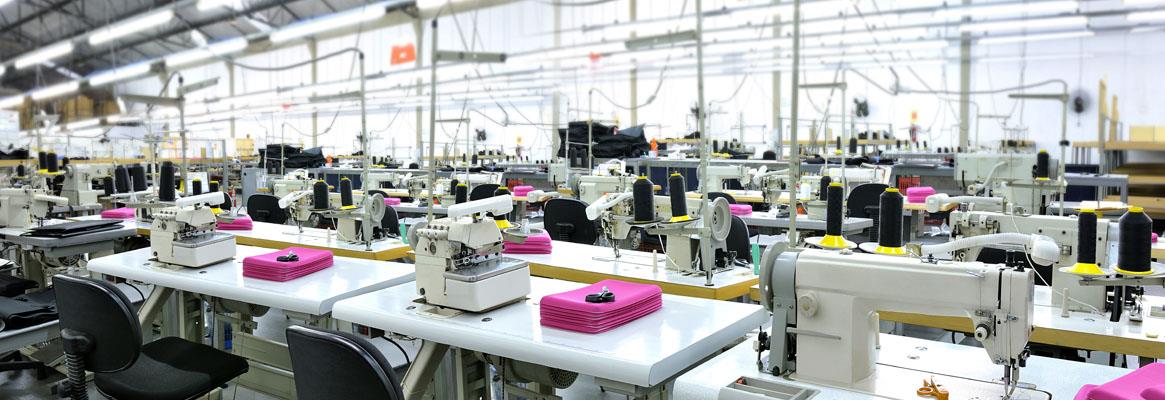Export promotion push is one of the central topics in the international trade debate. In international trade theory, however, strategic export promotion is not well-known. However, today this is probably one of the most difficult times for exporters almost anywhere in the world. It’s all due to the pandemic-induced lockdowns. India now more than ever before requires a powerful foreign trade policy to raise its economy. It must be assembled to face the new norm while nations battle to deal with a covid-19 pandemic and economic downturn.
The world has suffered troubled times and it is all ready to bounce back. When looking at 2020 the year has suffered loss, including the Indian apparel industry. For which the government has prepared strategic proposals that can help boost the export of apparel and textiles industry.
New policies have been framed; however, will it be strong enough to deal with the unforeseen repercussions of a pandemic? Here are some expectations from this policy.
•The government has boosted the selling price of a variety of products including cotton T-shirts, Baby garments, Man-made t-shirts and many others. The previous rates of cotton T-shirts were 1.90 and the modified rate 2.10. So, it increased by almost 0.20 percent. The exports came into effect from 4th February 2020.
•A special one-time additional ad hoc incentive of up to 1 percent of the free-on-board value for exports of apparel and made-ups was announced by the government.
•Further, India has targeted to increase the country's contribution market up to 15 to 20 percent from 6 percent.
•The cost of polyester has decreased dramatically due to the anti-dumping duty on PTA.
•THC came into existence in order to cut down the logistics costs and promote ease of doing business.
•India lifted the ban on surgical masks and disposable masks and exported them to China as it was in strong need of it.
•New textile policy ensured that the cost of international export for raw materials remained the same while it may cut down the power cost and credit cost. Resulting, in increased exports to EU and UK countries.
•The cabinet has approved the Scheme for the remission of duties and taxes on exported products under which a mechanism would be set up for reimbursement of taxes, duties and levies, at the central, state and local levels.
•During cotton years 2014/15 to 2018/19 has suffered losses incurred on the sale of cotton procured under MSP operations. For which the government has approved the additional expenditure of INR 1061.01 crore for cotton corporation India.
•The government has approved the continuation of RoSCTL till it merges with RoDTEP.
•Pradhan Mantri Garib Kalyan Yojana has allowed the poor to fight and have made Employee provident fund from the 4.80 crore employees have been benefited.
•The cost of BT cotton seeds remains at INR 730 per packet for the next fiscal year however it has been cleared out the royalty.
•The IGST was extended till 31st March 2021.
•An online platform has been launched in order to make things easier for exports to those countries with which has trade agreements to facilitate shipments during the COVID-19 crisis.
•RBI has extended the interest subsidy scheme for exporters till 31st March 2021.
•The DGFT has allowed the export of both non-medical and non-surgical masks for the long-term demand of the textile industry.
•The Indian government has allocated INR 20 Lakh crore for the Aatmanirbhar Bharat including textiles.
•An anti-dumping investigation on polyester yarn has been initiated which includes products under Indian customs code 55092100.
•The government of Indonesia has given privilege for fabrics made in India under new import tariffs imposed from May 2020 to November 2022.
•India banned the export of medical coveralls of all classes other than non-medical masks since June 2020. PPE Suit exports under quota system in June 2020.
•SBI has planned to invest $100-150 million to leverage the YONO platform to set up B2B.
•The Indian government has introduced a contactless process that would boost the in-house testing capability of the customs. New modern testing equipment for faster imports and exports clearances.
•AAAR has classified fusible interlining cloth outside the woven fabrics category and kept it in HSN 5903, so it remains GST free.
•India removed all the restrictions on exports for all the non-woven fabric used for masks.
•A new rule has been introduced that to include the mandatory display of country of origin on their products otherwise it would be penalized.
•RBI has agreed to a $400 million currency swap facility for Sri Lanka till November 2022. These are used to get foreign currency loans at a better interest rate.
•The restructuring scheme for stresses micro been extended to 31st March 2021.
•From August 2020 India has imposed anti-dumping duties on phosphoric acid imported from Korea for 5 years.
•An E-invoicing regime from 1st October 2020 has been planned.
•Allowed free export of all types of masks.
•The new scheme of remission of duties on export products has been considered for three sectors by the government.
•The CCI has decided to cut down the prices of minimum support price.
•The Indian government has re-imposed anti-dumping duty on linen fabric with more than 50 percent flax content that originated from China and Hong Kong.
•The sweater and shawl manufacturers are benefited as the antidumping duty on acrylic fiber has been removed exported from Thailand.
•Higher import tariffs will be imposed on a wide range of items that are made in China.
•India pays 9.60 percent duty for apparel exports to the EU whereas other countries like Pakistan, Bangladesh and Sri Lanka do not pay any other duty.
•India has been facing approximately 414 NTMs in the EU in a different sector.
Concluding,
Exports are important part of the country's GDP. Hence, foreign trade must be given priority and investment. Many steps have already been taken, yet there’s a long way to go. Such heights can be achieved with the help of online B2B marketplaces that will aid the growth of business. For that you can get your company registered with Fibre2Fashion’s F2FMART that will take your business to many buyers internationally.
Fibre2Fashion has 20 years of experience in textile and apparel industry, with more than 1.5 million monthly visitors across the globe.











Comments